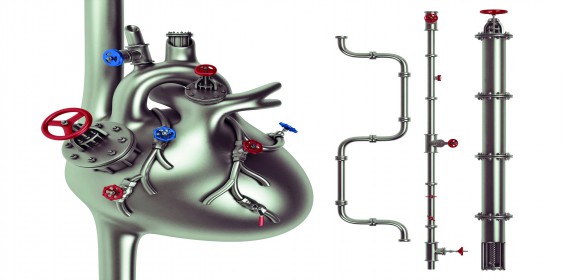The heart of the matter!
Published: 01 October, 2019
When looking around at various boiler operations and asking such question as “What would happen if you lost your boiler/boilers?” The common answer is “We would lose production,” or if it’s a hospital then it would be “We would have to close the operating theatres.” With replies of this nature it starts to become obvious that in the vast majority of cases the boilers and associated plant are the heart of the operation. Derry Carr – CEA Immediate past chairman – reports.
Then it begs the question, “Why are they so frequently treated with such contempt?” Very little investment, operated and managed by either untrained or poorly trained personnel. If they are the heart of the operation you would think the focus on them as a critical point of failure would be much higher on the agenda than it is. Giving the boilers to an engineer and saying get on with it is not good enough. After all, no one would want a general surgeon to carry out open heart surgery, we would all demand a well-trained cardiologist. Therefore, it is obvious that if you give an engineer a task such as looking after the boilers then give him/her the extra training required to fulfil the task you will be in a much better position of security of supply. Make sure the operators are also trained to carry out their role, they should be the eyes and ears on your systems.
Training is the first step, but there is always going to be resistance to providing it. They who hold the purse strings will come up with a myriad of reasons why the money can’t be released. This is short sighted and is actually illegal.
Firstly, the legality, under PUWER it is a legal requirement to train staff to operate all equipment. Boilers have a special place however, especially with the HSE. When things go wrong and unfortunately, they do, the HSE will ask you to prove the competence of your operators and their management team. If they are all BOAS trained the HSE may look no further. If they are not trained to this level, then you will find it difficult to prove competence.
When it comes to plant efficiency, the first weapon in the armoury to achieve this is well trained personnel. They know what to look for to keep boiler plant at its optimum efficiency. They know if the hotwell temperature is right, this will keep the injection of oxygen scavenger to its lowest acceptable level, so you will not be paying so much for chemicals. In turn this will help with the TDS levels, so you are not blowing down so much which further saves on energy and water usage. If the team are trained to use a combustion analyser, they will spot if the burner is drifting away from its optimum settings and raise it as an issue, so it can be addressed. This could literally save thousands of pounds in fuel costs per year. When properly trained they know not to start a boiler too quickly, and they know not to be pressurised by production to cut corners. If you have had D-patch repairs the likelihood is that the boilers have been regularly brought on line too fast causing thermal stress issues. How much did the repairs cost? £000’s. If the boilers were operated properly then this repair may not have been required at all!! Trained operators carry out comprehensive water analysis on a daily basis, this is essential. They spot things like hardness in the make-up water or hardness/contamination coming back in the condensate, they take action. It is quite common to find scale in boilers but do managers realise that 1mm of scale will reduce the boilers efficiency by between 7-10% this equates to thousands of pounds in wasted fuel over a year. As an example, if your boiler/s’ fuel bill is £100k / year then that 1mm of scale will cost you circa £10k in additional wasted fuel.
So, when I’m told “we can’t afford the training,” then my answer is “you can’t afford not to!”
Your boilers are the Heart of the organisation, look after them and they will give you a long and reliable life of service! Treat them badly and you will suffer the consequences.
*******
Recommended additional reading:
BG01 - Guidance on Safe Operation of Boilers
BG03 - Boiler Blowdown
BG04 - Boiler Water Treatment
***********
For further information please visit: https://cea.org.uk







